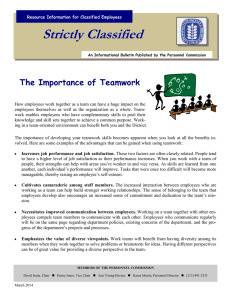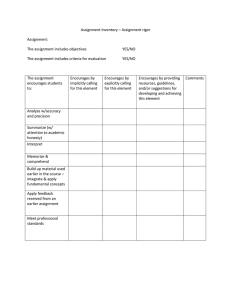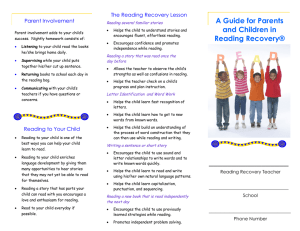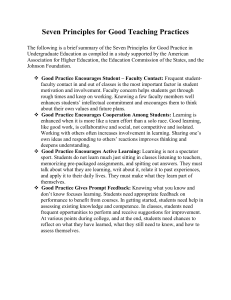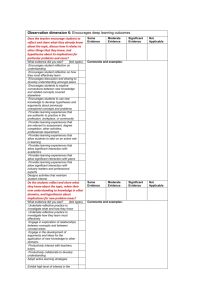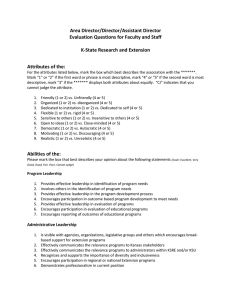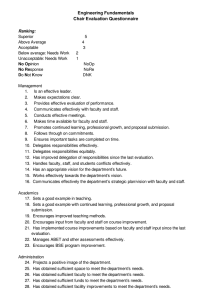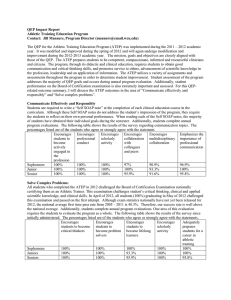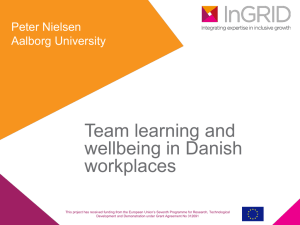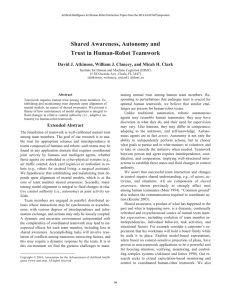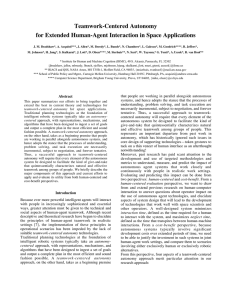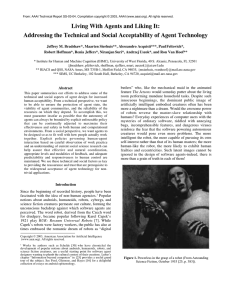Strictly Classified How to Build a Strong Work Team
advertisement
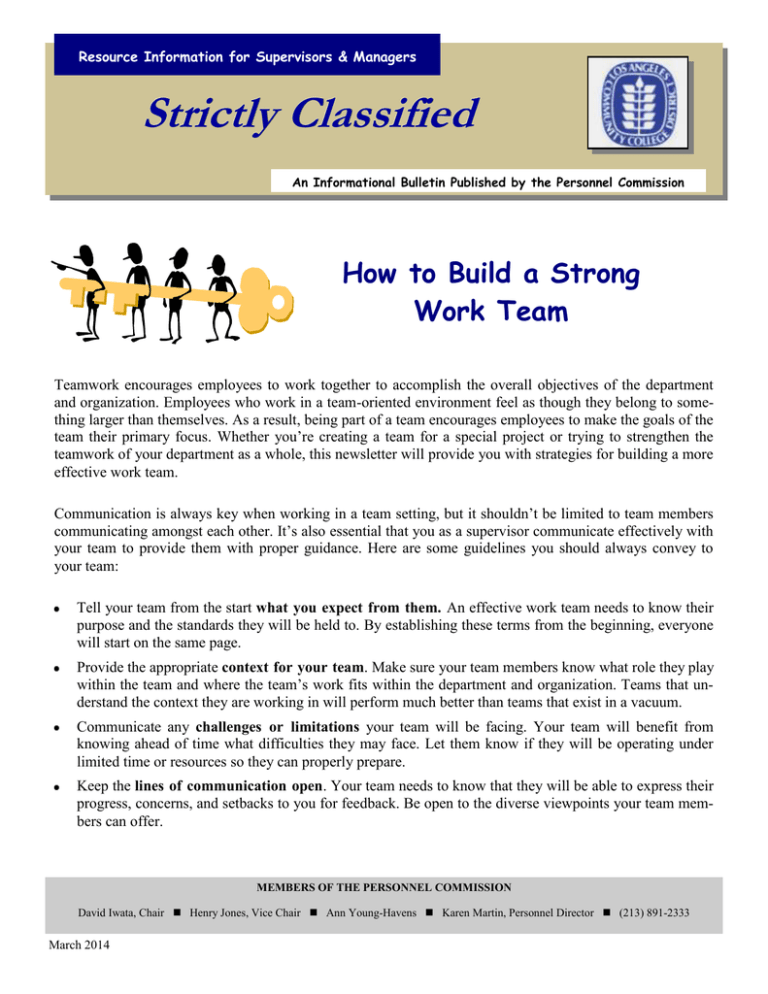
Resource Information for Supervisors & Managers Strictly Classified An Informational Bulletin Published by the Personnel Commission How to Build a Strong Work Team Teamwork encourages employees to work together to accomplish the overall objectives of the department and organization. Employees who work in a team-oriented environment feel as though they belong to something larger than themselves. As a result, being part of a team encourages employees to make the goals of the team their primary focus. Whether you’re creating a team for a special project or trying to strengthen the teamwork of your department as a whole, this newsletter will provide you with strategies for building a more effective work team. Communication is always key when working in a team setting, but it shouldn’t be limited to team members communicating amongst each other. It’s also essential that you as a supervisor communicate effectively with your team to provide them with proper guidance. Here are some guidelines you should always convey to your team: Tell your team from the start what you expect from them. An effective work team needs to know their purpose and the standards they will be held to. By establishing these terms from the beginning, everyone will start on the same page. Provide the appropriate context for your team. Make sure your team members know what role they play within the team and where the team’s work fits within the department and organization. Teams that understand the context they are working in will perform much better than teams that exist in a vacuum. Communicate any challenges or limitations your team will be facing. Your team will benefit from knowing ahead of time what difficulties they may face. Let them know if they will be operating under limited time or resources so they can properly prepare. Keep the lines of communication open. Your team needs to know that they will be able to express their progress, concerns, and setbacks to you for feedback. Be open to the diverse viewpoints your team members can offer. MEMBERS OF THE PERSONNEL COMMISSION David Iwata, Chair Henry Jones, Vice Chair Ann Young-Havens Karen Martin, Personnel Director (213) 891-2333 March 2014 When building and managing a work team, it’s important to regularly evaluate its progress and effectiveness. The following questions are useful to ask yourself when evaluating your team: Does the team have the right members in the right roles? A strong work team must be able to rely on the competence of its members to perform the part assigned to them. Are the team members dedicated to their mission? If your team is suffering from a lack of commitment, it may be a sign that more communication is needed between you and them. Make sure your team is aware of the value their contribution brings to the department and organization and the useful skills they will develop along the way. Do the members of your team collaborate well? A work team needs its members to have the appropriate interpersonal skills to work effectively with each other. Even with the necessary people skills, it’s also essential that the team understands the roles and responsibilities of all its members. Have you given your team enough autonomy? Work teams that are empowered feel a sense of ownership over their mission and goals. While autonomy brings freedom, it also requires accountability. Make sure that team members understand their boundaries and what they are responsible for. Will team members be aware of the results of their work? Team members who know the impact their work will have on the department and organization will be more dedicated to their mission. It will also motivate team members if they have a sense that their accomplishments will be recognized. Building a strong work team can be challenging, but will lead to a more committed staff that pulls together to meet challenges and benefits from a diverse membership. Team members will be able to contribute the strengths they’ve developed through their own unique experiences. By pooling each member’s set of knowledge and skills, members will learn from each other and work in an environment that encourages lifelong learning and continuous improvement. We’d like to hear from you! Please visit the following survey link to provide us with valuable feedback on our bulletins: https://www.surveymonkey.com/s/HHRSXW3.

